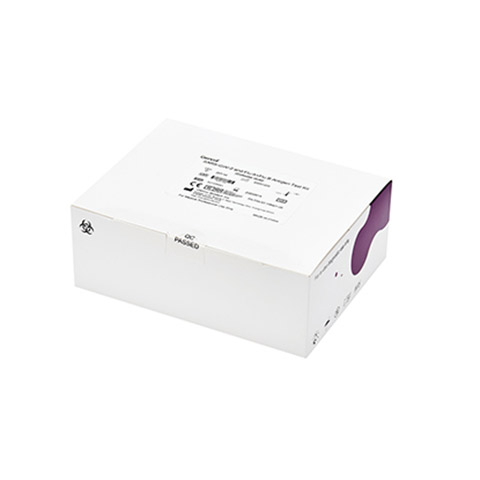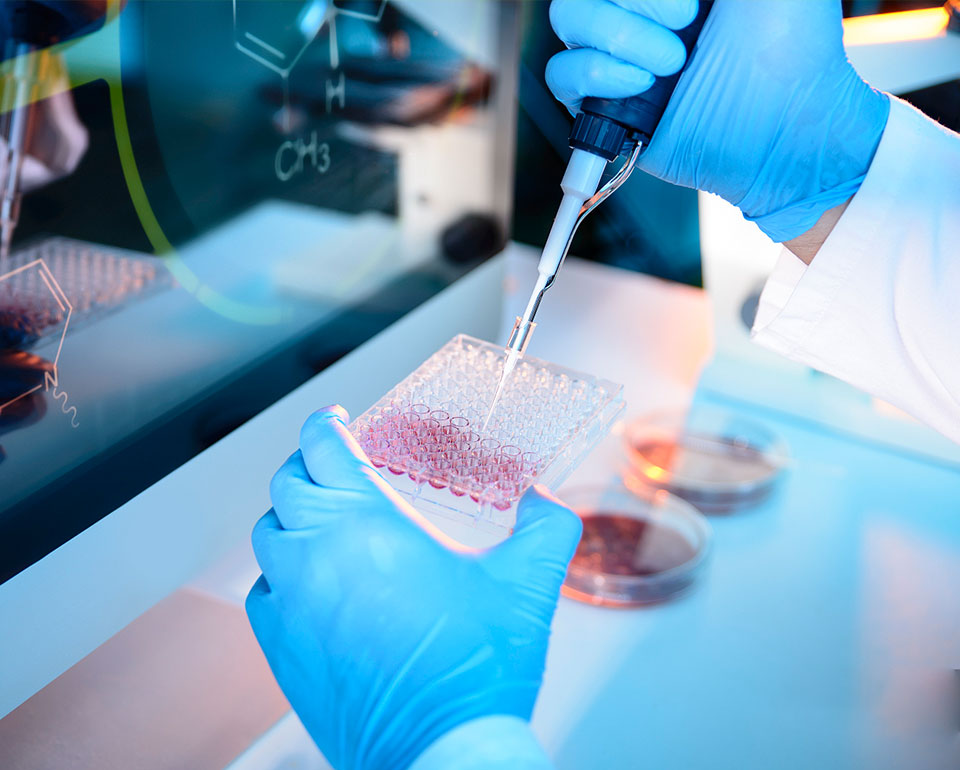As we know the COVID-19 pandemic is a scientific, medical, and social challenge. The syndrome coronavirus 2 (SARS-CoV-2) can rapidly develop, causing severe and deadly complications. The sars cov2 test is an important method of dealing with the pandemic. The identification of effective laboratory biomarkers able to classify patients based on their risk is imperative in being able to guarantee prompt treatment. Analysis of recently published studies suggests that systemic vasculitis and cytokinin-mediated coagulation disorders are major factors in multiple organ failure in patients with severe COVID-19 complications.
The following biomarkers have been identified: hematological (lymphocyte count, neutrophil count, neutrophil-lymphocyte ratio (NLR)), inflammatory (C-reactive protein (CRP), erythrocyte sedimentation rate (ESR), procalcitonin (PCT)), immunological (interleukin (IL)-6 and biochemical (D-dimer, troponin, creatine kinase (CK), aspartate aminotransferase (AST)), especially those related to coagulation cascades in disseminated intravascular coagulation (DIC) and acute respiratory distress syndrome (ARDS). Genrui offers a variety of multi biomarkers detection options and products including the Hematology analyzer, Specific Protein Analyzer series, the chemistry analyzer series and POCT's Quantitative Immunoassay Analyzer.
References:
Ponti G, Maccaferri M, Ruini C, Tomasi A, Ozben T. Biomarkers associated with COVID-19 disease progression. Crit Rev Clin Lab Sci. 2020 Sep;57(6):389-399. DOI: 10.1080/10408363.2020.1770685. Epub 2020 Jun 5. PMID: 32503382; PMCID: PMC7284147.
Kermali M, Khalsa RK, Pillai K, Ismail Z, Harky A. The role of biomarkers in the diagnosis of COVID-19 - A systematic review. Life Sci. 2020 Aug 1;254:117788. DOI: 10.1016/j.lfs.2020.117788. Epub 2020 May 13. PMID: 32475810; PMCID: PMC7219356.


The viruses that cause COVID-19 are in the coronavirus group. Under microscopy, these organisms can be identified through their coronary shape. The lung diseases SARS and MERS are also caused by a virus in the group. Only a few people are immune to the currently popular novel coronavirus; so it has caused a considerable number of victims. Most infected people have only mild discomfort and will subside in a few days.
The symptoms of the coronavirus infection include:
Cough
Fever
Headache
loss of taste or smell
Repeated shaking with chills
Sore throat
Shortness of breath
Muscle pain
Some people have a worse course. COVID-19 may then be related to severe respiratory problems, pneumonia, high fever, and severe breathing difficulties. Not all patients with severe COVID-19 symptoms can survive. Older people are at higher risk of severe illness, as with previous diseases such as cataracts. For example cardiovascular disease, cancer or diabetes. Therefore, COVID-19 testing is becoming a common thing in people's daily lives.

According to several studies from three databases, Scopus, PubMed, and Web of Science have shown Abnormal coagulation function has been demonstrated to be involved in the disease progression of COVID-19, elevated D-dimer in COVID-19 patients is associated with higher mortality.
Patients with severe COVID-19 have a higher level of D-dimer than those with non-severe disease, and D-dimer greater than 0.5 μg/ml is associated with a severe infection in patients with COVID-19.
Expert opinion: D-dimer level is one of the measures used in patients to detect thrombosis. Studies have reported an increase in D-dimer and fibrinogen concentrations in the early stages of COVID-19 disease a 3 to 4-fold rise in D-dimer levels are linked to poor prognosis. In addition, underlying diseases such as diabetes, cancer, stroke, and pregnancy may trigger an increase in D-dimer levels in COVID-19 patients. Measuring the level of D-dimer and coagulation parameters from the early stage of the disease can also be useful in controlling and managing COVID-19 disease.
Genrui offers a variety of D-dimer detection options and products including the Specific Protein Analyzer series, the chemistry analyzer series and POCT's Quantitative Immunoassay Analyzer.
As we know the COVID-19 pandemic is a scientific, medical, and social challenge. The syndrome coronavirus 2 (SARS-CoV-2) can rapidly develop, causing severe and deadly complications.
The identification of effective laboratory biomarkers able to classify patients based on their risk is imperative in being able to guarantee prompt treatment.
Analysis of recently published studies suggests that systemic vasculitis and cytokine-mediated coagulation disorders are major factors in multiple organ failure in patients with severe COVID-19 complications.
The following biomarkers have been identified: hematological (lymphocyte count, neutrophil count, neutrophil-lymphocyte ratio (NLR)), inflammatory (C-reactive protein (CRP), erythrocyte sedimentation rate (ESR), procalcitonin (PCT)), immunological (interleukin (IL)-6 and biochemical (D-dimer, troponin, creatine kinase (CK), aspartate aminotransferase (AST)), especially those related to coagulation cascades in disseminated intravascular coagulation (DIC) and acute respiratory distress syndrome (ARDS).
Genrui offers a variety of multi biomarkers detection options and products including the Hematology analyzer, Specific Protein Analyzer series, the chemistry analyzer series and POCT's Quantitative Immunoassay Analyzer.